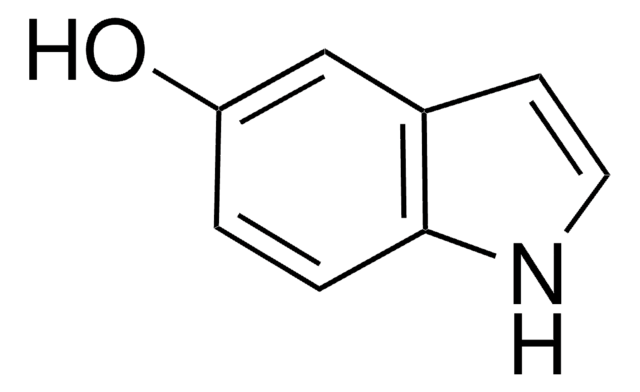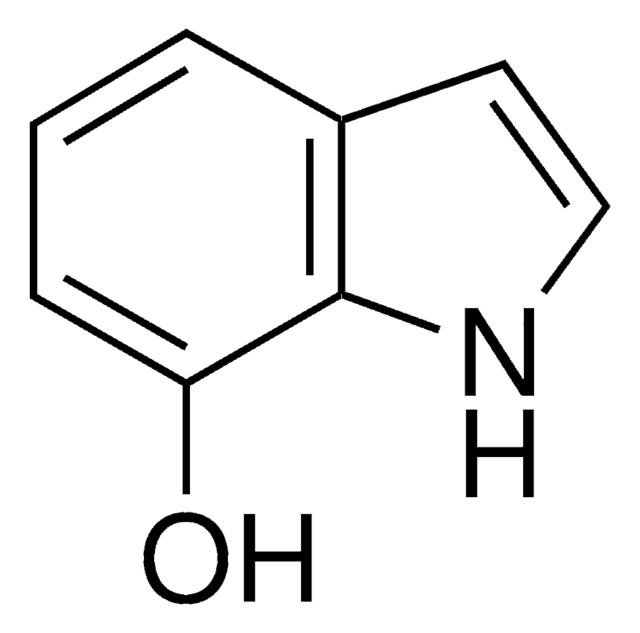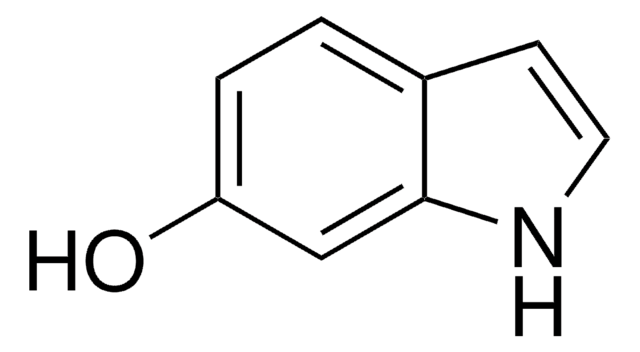18805
6-Hydroxyindole
≥99.0% (GC)
Synonym(s):
6-Indolol
About This Item
Recommended Products
assay
≥99.0% (GC)
form
solid
mp
126-132 °C
SMILES string
Oc1ccc2cc[nH]c2c1
InChI
1S/C8H7NO/c10-7-2-1-6-3-4-9-8(6)5-7/h1-5,9-10H
InChI key
XAWPKHNOFIWWNZ-UHFFFAOYSA-N
Looking for similar products? Visit Product Comparison Guide
Related Categories
Application
- Reactant for preparation of tryptophan dioxygenase inhibitors pyridyl-ethenyl-indoles as potential anticancer immunomodulators
- Reactant for asymmetrical synthesis of notoamide J as a potential biosynthetic precursor of prenylated indole alkaloids
- Reactant for preparation of (quinolinyloxymethyl)isoxazolecarboxylate esters antituberculosis agents
- Reactant for preparation of indolyl(propanolamine) derivatives as HIV inhibitors
- Reactant for preparation of indoleoxyacetic acid derivatives as peroxisome proliferator-activated receptor agonists
- Reactant for preparation of 1-aroylindole 3-aroylindoles combretastatin A-4 analogs as antitumor agents and tubulin polymerization inhibitors
signalword
Danger
hcodes
Hazard Classifications
Acute Tox. 4 Oral - Aquatic Chronic 2 - Eye Dam. 1 - Skin Sens. 1
Storage Class
11 - Combustible Solids
wgk_germany
WGK 3
flash_point_f
Not applicable
flash_point_c
Not applicable
ppe
dust mask type N95 (US), Eyeshields, Faceshields, Gloves
Certificates of Analysis (COA)
Search for Certificates of Analysis (COA) by entering the products Lot/Batch Number. Lot and Batch Numbers can be found on a product’s label following the words ‘Lot’ or ‘Batch’.
Already Own This Product?
Find documentation for the products that you have recently purchased in the Document Library.
Our team of scientists has experience in all areas of research including Life Science, Material Science, Chemical Synthesis, Chromatography, Analytical and many others.
Contact Technical Service










